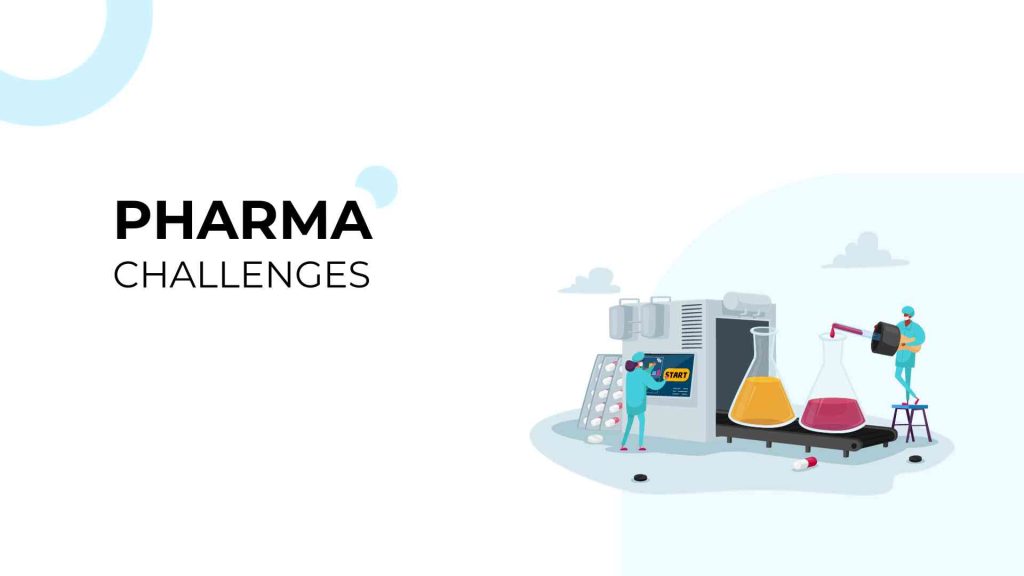The pharmaceutical industry stands at the forefront of healthcare, dedicated to the research, development, and production of life-saving medications and therapies. With a rich history dating back centuries, this dynamic sector has evolved into a global powerhouse, shaping how we combat diseases, manage health conditions, and enhance the quality of human life.
In the pursuit of scientific discovery and innovation, pharma firms invest heavily in RND, striving to create groundbreaking treatments and medicines that improve the well-being of individuals and communities worldwide. This introduction provides a glimpse into the multifaceted world of the pharmaceutical industry, a field that constantly stretches the boundaries of science and technology to manage some of the most insisting healthcare challenges of our time.
The pharmaceutical industry in 2023 faces a range of challenges, many of which have been ongoing for some time, while others have emerged or evolved in response to changing global dynamics. Some of the key challenges include:
Drug Pricing and Affordability
The high cost of prescription drugs remains a significant concern in many countries. Governments, insurers, and consumers are pressuring the industry to address pricing transparency and control drug prices to ensure access to essential medications.
Intellectual Property and Patent Expirations
As patents for blockbuster drugs continue to expire, pharmaceutical companies face increased competition from generic manufacturers. It challenges their ability to maintain revenue streams and necessitates a focus on innovation and new drug development.
Regulatory Hurdles
Stricter regulations and increased scrutiny from regulatory agencies can slow down drug development timelines and increase costs. Adhering to evolving compliance requirements and ensuring the safety and efficacy of new drugs is an ongoing challenge.
Rising R&D Costs
Pharmaceuticals’ research and development (R&D) cost is rising consistently. Creating a unique drug can take years and cost millions of dollars. Pharmaceutical companies must continually invest in R&D to stay competitive.
Drug Development Failures
A significant portion of drugs entering clinical trials fail to market, resulting in significant financial losses. Companies must improve their success rates and minimize development risks.
Biopharmaceutical Challenges
The increasing focus on biopharmaceuticals, including gene therapies and cell-based therapies, presents new manufacturing and regulatory challenges. These therapies are complex to develop, produce, and distribute.
Supply Chain Disruptions
The pharmaceutical supply chain has been vulnerable to disruptions due to events like the COVID-19 pandemic. Ensuring the resilience and reliability of the supply chain remains a priority.
Data Privacy and Security
As pharmaceutical companies collect and analyze extensive patient data for research and development, they must address data privacy and security concerns to maintain public trust.
Global Health Concerns
Global health crises, such as pandemics and the emergence of new infectious diseases, can profoundly impact the pharmaceutical industry. The need for rapid vaccine development and distribution is a prime example.
Market Access and Reimbursement
Access to new drugs and reimbursement by healthcare systems and insurance providers vary by region. Companies must navigate these complexities to ensure their products reach patients in need.
Evolving Healthcare Models
Changes in healthcare delivery models, such as the shift towards value-based care and telemedicine, require pharmaceutical companies to adapt and find innovative ways to deliver and price their products.
Drug Resistance
The emergence of drug-resistant pathogens and diseases is a growing concern. Developing effective treatments in the face of evolving resistance is a persistent challenge.
Environmental Sustainability
The pharmaceutical industry is increasingly under pressure to adopt more environmentally sustainable practices, from reducing waste in manufacturing to addressing the environmental impact of drug disposal.
To remain competitive and address these challenges, pharmaceutical companies will likely focus on innovation, digital transformation, and partnerships with other healthcare stakeholders. Additionally, governments and regulatory bodies will continue to play an effective part in shaping the industry’s future through policy changes and initiatives to improve healthcare access and affordability.
In conclusion, Acumatica Cloud ERP offers a transformative solution for the pharmaceutical industry, propelling it into an era of heightened efficiency, compliance, and competitiveness. By seamlessly integrating core business functions such as inventory management, quality control, regulatory compliance, and financials, Acumatica streamlines operations, reduces costs, and accelerates decision-making.
Its cloud-based architecture ensures scalability and accessibility, allowing pharmaceutical companies to adapt swiftly to market dynamics and regulatory changes while fostering collaboration across geographically dispersed teams. Moreover, with robust data analytics and reporting capabilities, Acumatica empowers organizations to make data-driven decisions that enhance research and development. And optimize supply chains, and ultimately, bring life-saving drugs and therapies to market faster. In an industry where precision, compliance, and speed are paramount, Acumatica ERP emerges as a vital tool, positioning pharmaceutical companies for success in a rapidly evolving and critical field. Contact us for a customized ERP solution.

Sangeetha brings 20 years of experience in Information Technology which includes Solution architecting, building micro services, research, and evaluation of business applications, integrating apps.

